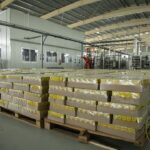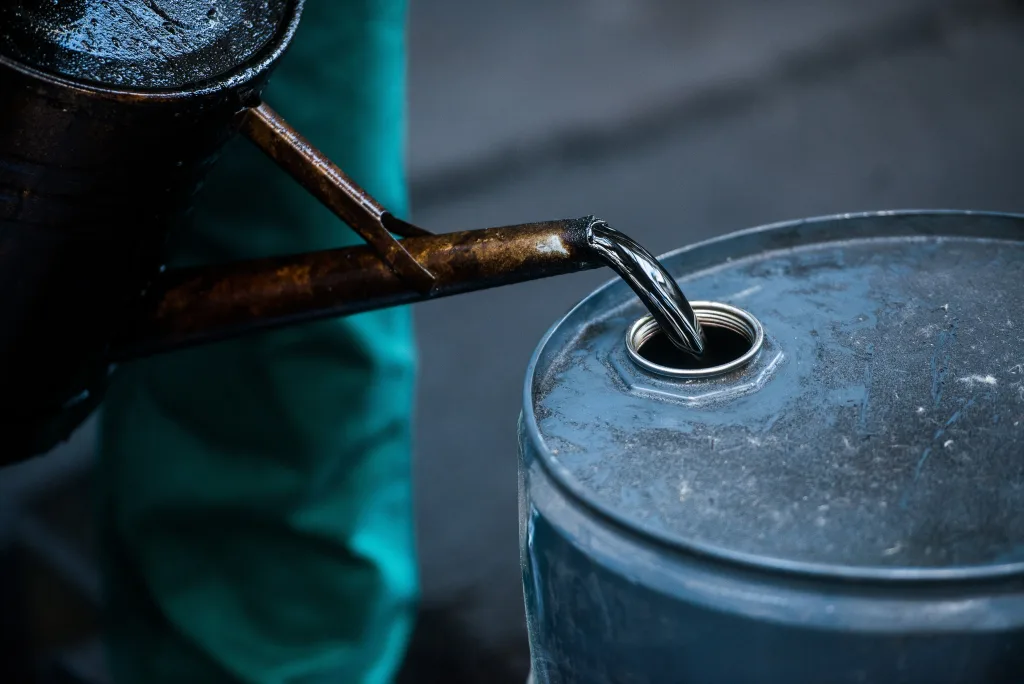Agricultural tech and research firm Esoko has warned that the country could run into food insecurity if players in the industry do not resolve the challenges of post-harvest management immediately.
According to Esoko, despite the increase in production capacity over the years, which actually contributed to the country being food sufficient amid the COVID-19 pandemic, it risked facing a shortage in the long term.
In an interview with The Ghana Report on Friday, July 23, 2021, a Content Manager at Esoko, Francis Danso-Adjei, explained that the country is faced with a myriad of challenges, in the post-harvest value chain.
He explained that these challenges, which are inherent in the transportation, processing and storage value chain, poses a threat to food security if not resolved through sector collaboration.
Mr Danso-Adjei said that because of these challenges, the country loses volumes of foodstuff after production, especially perishable produce, which in turn “reduce the volume that we have for utilisation.”
In addition to the post-harvest management, a challenge is a rising demand in the system, which is fast outstripping supply, resulting in higher prices of commodities on the market.
“Now, demand for domestic and industrial use is far outstripping the supply that we have. The volumes available currently are not able to meet the demand, so, you see that prices going up.

He, therefore, recommended that all players within the industry, come together to ensure that the challenge of post-harvest management is dealt with to ensure the sustainable supply of food all year round.
He said, “We must ensure that we utilise the increase that comes, by finding a way of storing, other than that, anytime that we are out of the production season, we are going to have difficulties feeding ourselves.”
“It is about time that players within the industry come together, and not say that this is the problem of the government or the private sector. Both would have to come together so that they meet each other half.
That way, the government can enact certain policies that will facilitate the private sector having access to the fund to make sure that there are processing and storage facilities available,” he added.
Mr Danso-Adjei also noted that it was important for both the government and private sector to collaborate and ensure that there are enough processing and storage facilities.
This, he opined, would, “safeguard our economic activities and make sure that people have food to eat all year round.”
While admitting that the concerns raised by the General Agricultural Workers Union (GAWU) over a likely food shortage, was justified, he allayed the fears of Ghanaians of such an occurrence in the shortest possible time
“They (GAWU) are justified to raise those flags, but this is not going to happen in the immediate future, because we are entering into the harvest period,” the content manager at Esoko said.
Adding that, “after we have depleted the ones we have harvested, that is where the challenge is going to be. We, therefore, need to find solutions now, so that we do not get to that point where we are going to experience food shortage,” he urged industry players.
Meanwhile, the World Bank reports that there is an increasing number of countries are facing growing levels of acute food insecurity, reversing years of development gains.
World Bank has indicated that the impact of the COVID-19 has led to severe and widespread increases in global food insecurity, affecting vulnerable households in almost every country.
This situation, it projects, would continue through 2021 and into 2022, which could pose a threat to food security in many countries, with Ghana not being an exception.
A recent report prepared by the Ministry of Food and Agriculture (MoFA) in 2015 also noted that about 5% of Ghana’s population (about 1.2 million people) are food insecure.
However, a Deputy Minister for Foods and Agriculture, Yaw Frimpong Addo has allayed the fears of Ghanaians of a possible food shortage.
He argues that in spite of the recent hikes in food prices and concerns raised by GAWU over the same, in addition to the smuggling of fertilisers, which poses a threat to production, he has assured that by October this year, prices of foodstuff would stabilise.
“It is our hope that once the new produce has been harvested by end of September, October prices will stabilise because we are going to have a lot of foodstuffs in the market and naturally the demand and supply will settle the price,” he said.
“Lots of them will be harvested, especially the middle sector and the Southern sector,” he added.
Mr Addo, speaking on the Business Edition of PM Express on Joy FM, said that “the Northern sector are now planting and if by three months they are ready, it will be harvested so in the Northern sector.”
He indicated that the product that would be harvested from the northern belt between October and November is expected to last to the next planting season.
“It’s a technical thing, and it’s just unfortunate that last year we had bad weather in the middle and Southern belt, and it affected the output in these areas but for the North that has very good rains, we were going to face some serious drought in this country. Thank God that we escaped that calamity,” he added.

















I think this idea is laudable, government private partnership must work to ensure we have enough food for the Country. I know planting for food and job will do, but storage is our major concerned
If care is not taken, prices of food will increase, that will seriously cause inflation. I trust the government will do something about it.